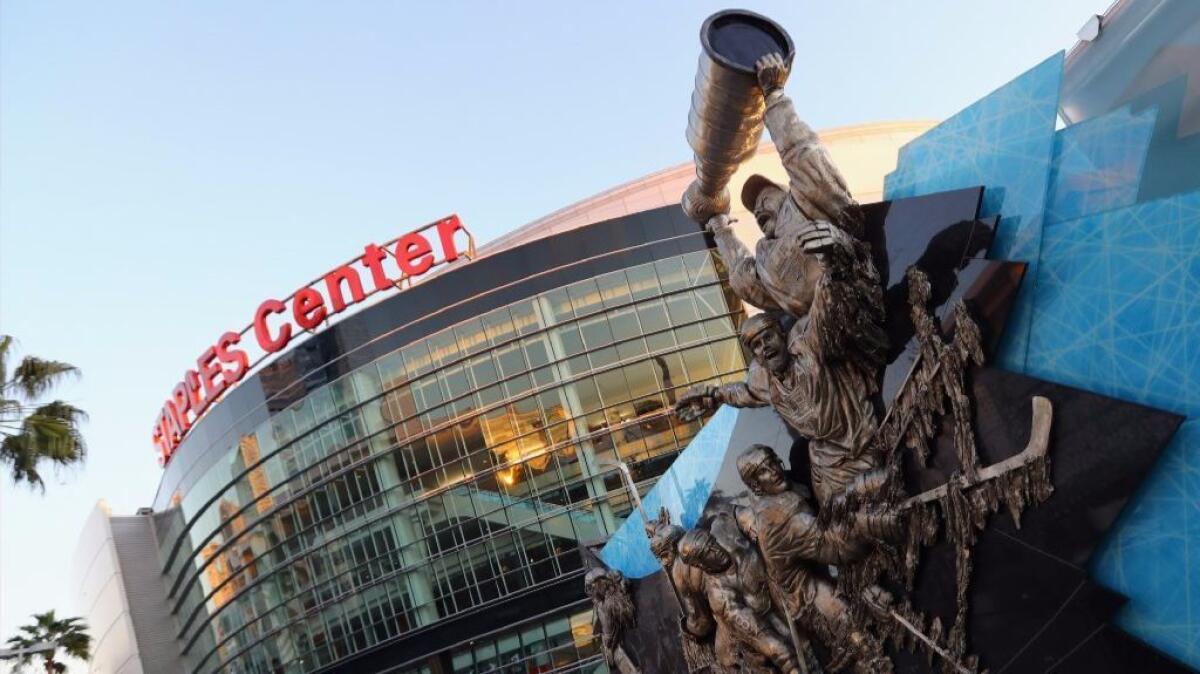How the NHL All-Star Game will work

- Share via
The NHL All-Star game, which will be played as a three-on-three mini-tournament Sunday at Staples Center, has had more formats over the years than the average NHL game has goals.
For most of the first two decades, the game was played before the season and matched the previous season’s Stanley Cup winner against a team of all-stars from other teams. The 1967 expansion led to a shift to West vs. East and to playing the game at mid-season.
Other years, the teams were Wales vs. Campbell, then the names of the conferences. Later came the North American stars vs. World stars, and teams named after distinguished players, such as the Team Toews vs. Team Foligno game in Columbus in 2015. Alas, Team Toews never got to defend its title because that format was scrapped, too. In Olympic years, there’s no All-Star game.
Eager to revive interest in the game — and to capitalize on the excitement generated during three-on-three overtime — the NHL made a radical change at last season’s game in Nashville by switching to a division-based mini-tournament. It was a critical and competitive success and will be repeated Sunday.
Players were divided into four teams, based on the division in which they play. Each team will have six forwards, three defensemen and two goaltenders. The respective captains were determined in fan balloting; the winners were center Connor McDavid of Edmonton (Pacific Division), defenseman P.K. Subban of Nashville (Central), goaltender Carey Price of Montreal (Atlantic) and center Sidney Crosby of Pittsburgh (Metropolitan). Members of the NHL’s hockey operations staff selected the other 40 players.
Each team will play a 20-minute, three-on-three game Sunday. The winners will advance to the finale, with $1 million to be awarded to the winner. Last season, the Pacific Division beat the Central Division, 9-6, in its first game and defeated the Atlantic Division, 1-0, in an entertaining finale to earn the prize money.
The winning team in Saturday’s skills competition earned the right to choose its first opponent on Sunday and whether it will play the first semifinal or second semifinal.
It promises to be fun, but it’s probably not worth the effort of memorizing the rules because they’ll likely change again in the next few years.
Follow Helene Elliott on Twitter @helenenothelen
Go beyond the scoreboard
Get the latest on L.A.'s teams in the daily Sports Report newsletter.
You may occasionally receive promotional content from the Los Angeles Times.



